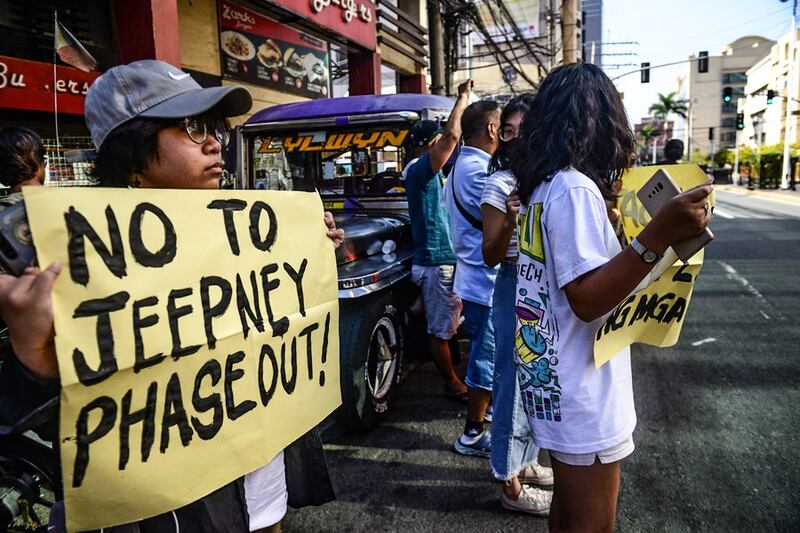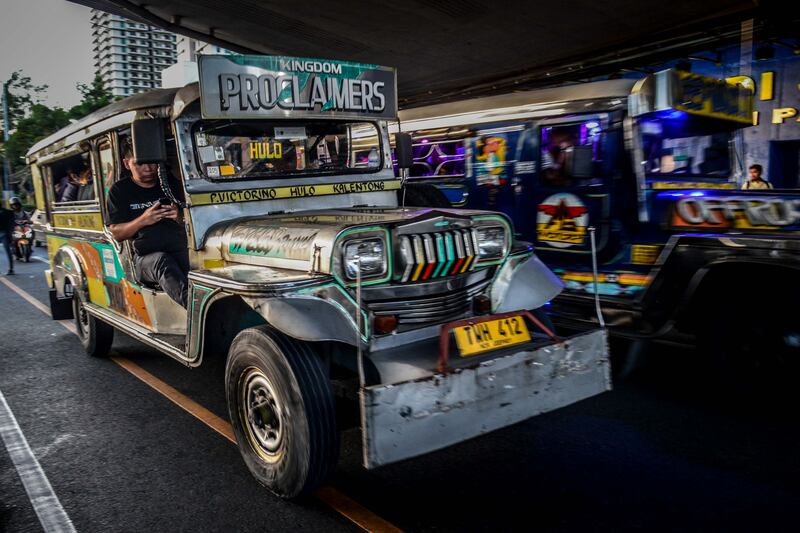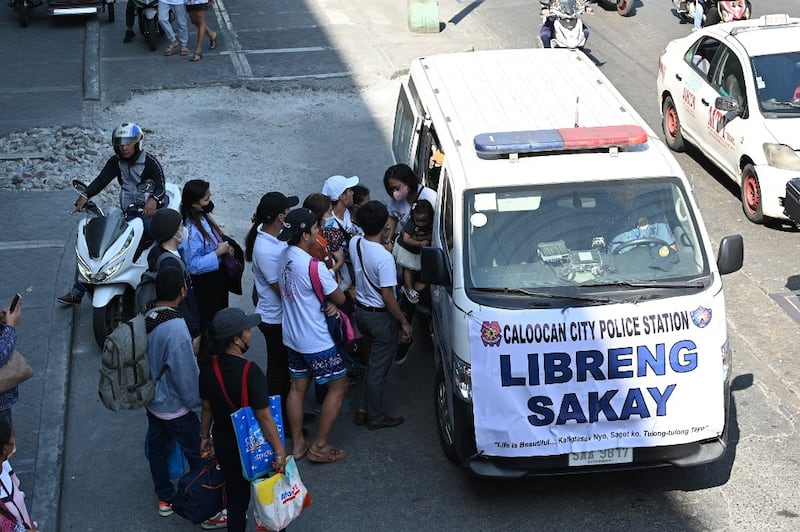Transport groups launched a weeklong nationwide transportation strike in the Philippines on Monday to protest the government’s modernization program to phase out old public utility vehicles, including the iconic jeepneys.
Members of different organizations, including Manibela (Steering Wheel) and Pinagkaisang Samahan ng mga Tsuper at Operator Nationwide - PISTON (the Coalition of Drivers and Operators Nationwide) gathered early in different parts of Metro Manila to begin their peaceful action.
Some school classes were called off in cities in and around Manila, while the government deployed state vehicles to ferry those stranded by the protest action. BenarNews reporters saw a bus normally used to transport inmates joining the government fleet.
Thousands of jeepney drivers joined the first day of the strike. But the Land Transportation Franchising and Regulatory Board (LTFRB) said only 5% of jeepney drivers joined the nationwide strike, while 10% joined it in Metro Manila.

“They will take away our right to be on the streets, they are taking away our right to earn a living,” said Julius Aniban Aban, 52, a jeepney driver for three decades. “At my age, do you think any establishment would still hire [me] should jeepneys be phased out?”
Aban said his jeepney had witnessed the growth of his two children, the eldest of whom had already finished university because of the money Aban earned plying the same route since he was in his 20s.
Drivers and operators have long opposed the modernization program, citing high costs and lack of government support. The government, under former President Rodrigo Duterte, launched the same program in 2017 to phase out all old public utility vehicles or PUVs by 2020, but to no avail.
These old vehicles, especially jeepneys, were deemed unsafe and harmful to the environment. Yet they are a part of Philippine culture, and they trace their origin to the old Willys jeeps used in World War II that were reconfigured to become mini-buses.

As part of its plan, the government has required industry consolidation, which mandates 15 individual franchise holders to form one cooperative or corporation, or risk losing their license to operate. The government said this move was to help operators acquire modern jeepneys and vehicles amounting to at least U.S. $50,000 through loans from state banks, a costly proposition considering a driver earns just about $20 a day.
The government had earlier imposed a June 30, 2023 deadline for consolidation, but later moved it to the last day of the calendar year, New Year’s Eve.
But many jeepney operators still oppose it, saying they would be at the losing end. They would have to give up their individual franchises and then take on loans worth millions of Philippine pesos that many are not sure they could afford.
“In the end, we, our jeepneys, will still be phased out,” Manibela national president Mar Valbuena said as the group called on the government to scrap the phaseout plan.
President Ferdinand Marcos Jr. has acknowledged the problem of stiff opposition to the phaseout plan. He said his administration would push ahead with the plan. Newer vehicles powered by clean energy would benefit the environment, but the program’s timetable and mode of implementation should be reviewed, he said.
“We still need to fix our supply of renewable energy. Because even if it’s an electric vehicle, if you charge it using electricity from a coal-fired plant, then it’s just the same. You just moved the source of pollution. So that’s an improvement but that doesn’t help climate change,” Marcos told reporters last week.
Instead of automatically phasing out old vehicles, the government should inspect them to check which ones are in good condition and are still usable, Marcos added.

LTFRB chairperson Teofilo Guadiz III said each traditional jeepney operator would receive a higher government subsidy of P260,000 or nearly $5,000, which would be sourced from the road users’ tax.
Despite this, transport groups were keen on continuing with their protest.
“They said there will no longer be a phaseout. We can treat this as a success if we actually see a document declaring this. For now, we will continue our transport strike to junk the poor implementation of the modernization program,” the Manibela group said in a statement.
